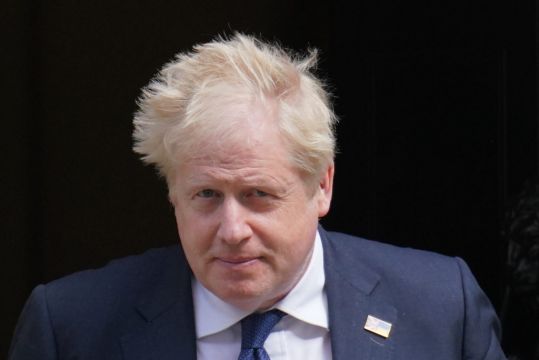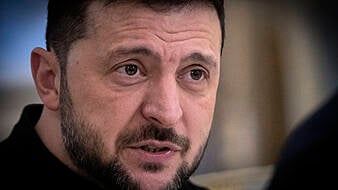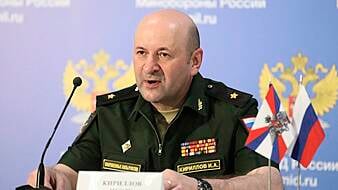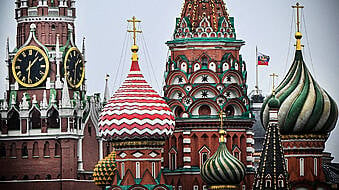Boris Johnson denied attacking the BBC over its coverage of the Vladimir Putin’s war in Ukraine as he was accused of slandering the broadcaster’s journalists who are risking their lives to report the conflict.
At a private meeting of Tory MPs, the British prime minister was said to have attacked the BBC and Archbishop of Canterbury Justin Welby for criticising his Rwanda asylum plan, claiming they had been “less vociferous” about condemning Mr Putin.
But Mr Johnson denied criticising the BBC over its coverage of the Ukraine war, insisting he said “nothing of the kind” at the behind-closed-doors meeting on Tuesday night.
Labour leader Sir Keir Starmer seized on the reports of the meeting, telling MPs: “The Prime Minister also accused the BBC of not being critical enough of Putin.
“Would the Prime Minister have the guts to say that to the face of (BBC reporters) Clive Myrie, Lyse Doucet and Steve Rosenberg, who have all risked their lives day in, day out, on the frontline in Russia and Ukraine uncovering Putin’s barbarism?”
The prime minister responded: “I said nothing of the kind and I have the highest admiration – as a former journalist – for what journalists do. I think they do an outstanding job.
“I think he should withdraw what he just said – it has absolutely no basis or foundation in truth.”
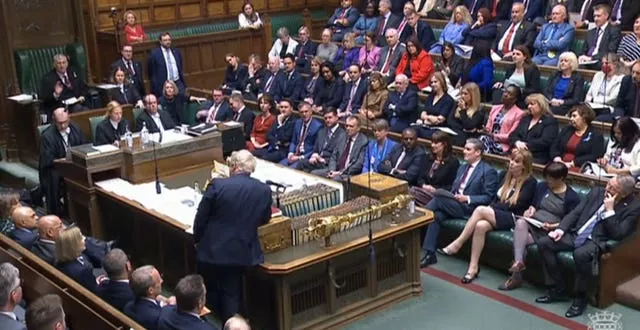
Mr Starmer said the prime minister would “slander decent people in a private room, let the slander spread without the backbone to repeat it in public”.
“How can the Prime Minister claim to be a patriot when he deliberately attacks and degrades the institutions of our great country?” Sir Keir added.
Mr Johnson shot back: “I did not attack the BBC last night for their coverage of Ukraine. He must be out of his tiny mind.”
Tory MPs would be prepared to “testify to that”, he added.
Sir David Evennett, Conservative MP for Bexleyheath and Crayford, later raised a point of order to say: “On these benches we strongly believe in the BBC and believe that it does a great job, especially on reporting from the Ukraine; the suggestion from the Leader of the Opposition that the Prime Minister suggested somewhat differently in last night’s meeting, which I attended, is absolutely inaccurate and the Leader of the Opposition (should) retract that because he’s misled the House.”

The reported remarks came as Mr Johnson sought to shift attention away from his apology for breaking coronavirus rules by attending his lockdown-busting birthday party in the Cabinet Room in June 2020.
Sources close to the prime minister said he told Tory MPs in a private meeting the Rwanda plan was a “good policy” despite some “criticism on the BBC and from senior members of the clergy” who he said “had been less vociferous in their condemnation on Easter Sunday of Putin than they were on our policy of illegal immigrants”.
The Daily Telegraph – Mr Johnson’s former employer – reported that Mr Johnson accused both the BBC and the Archbishop of Canterbury of being more critical of the UK government’s plans to send Channel migrants to Rwanda than of the invasion of Ukraine.
On BBC Radio 4’s Today on Wednesday, presenter Justin Webb challenged business minister Paul Scully about the prime minister’s comments.
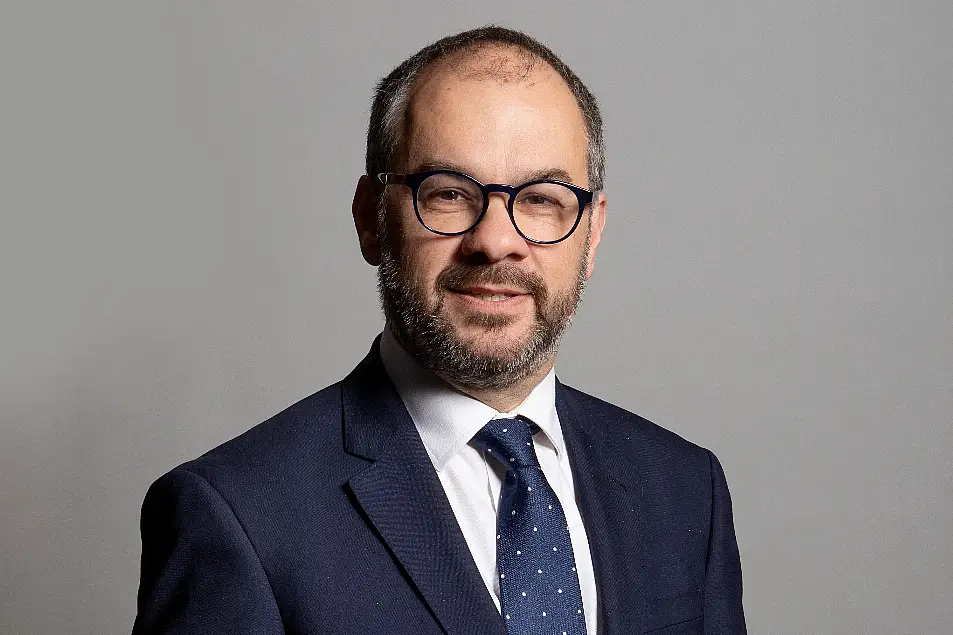
Mr Scully said he had “not seen a lot of the coverage” on the BBC about the plan to send some asylum seekers who arrive in the UK on a one-way trip to Rwanda for processing “because I was away over the weekend”.
Mr Webb said: “He apparently made the point to Conservative MPs that the BBC and the Archbishop (of Canterbury) were not focusing enough on Vladimir Putin.
“I just wonder, can you come up with an occasion when Boris Johnson has put his life on the line for the truth – as (BBC correspondents) Jeremy Bowen has, as Lyse Doucet has, as Clive Myrie has?”
Mr Johnson faces the prospect of a Commons vote on Thursday on whether a parliamentary committee should investigate claims he lied to the House.
Mr Scully said: “It’s not something I can particularly comment on… in terms of the fact that… his approach to his view on the BBC’s approach to Putin.”
Mr Webb suggested it was a “smokescreen” and Mr Johnson was “attacking people he really ought not to be attacking”.
Mr Scully said: “I don’t remember the comment particularly, I’m just trying to explain the context that I believe he may have been trying to make.”
He acknowledged there had been some “excellent coverage from the BBC and elsewhere” on the ground in Ukraine.
“I’m not attacking the BBC, I’m here joining you,” he told Today.
